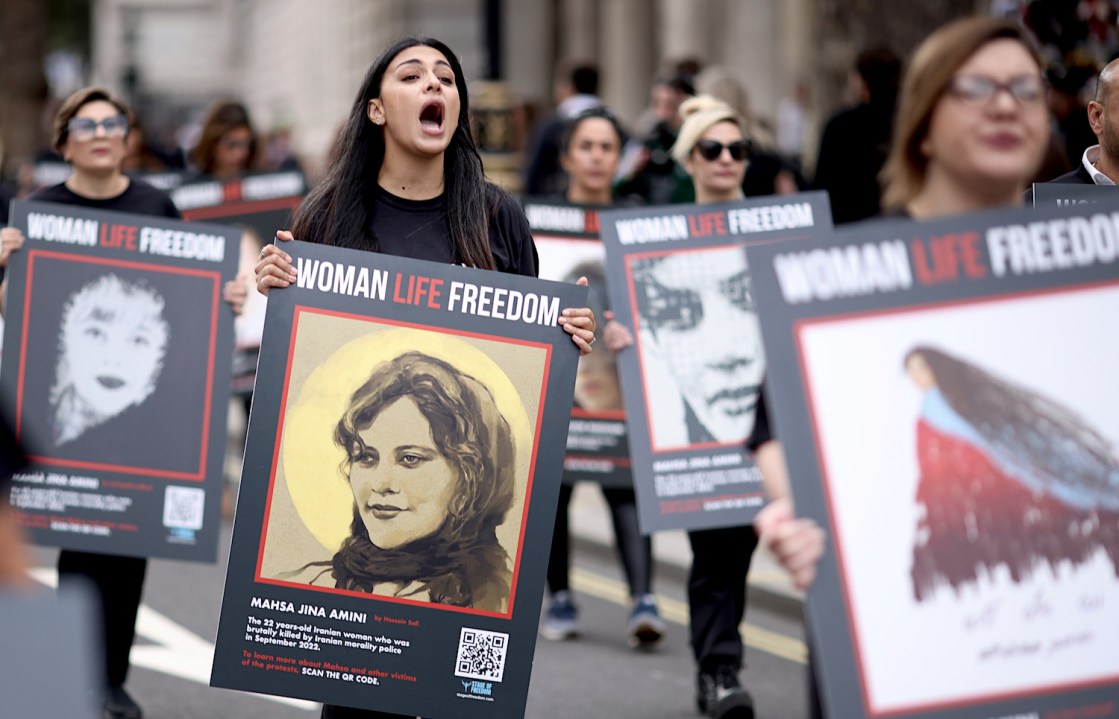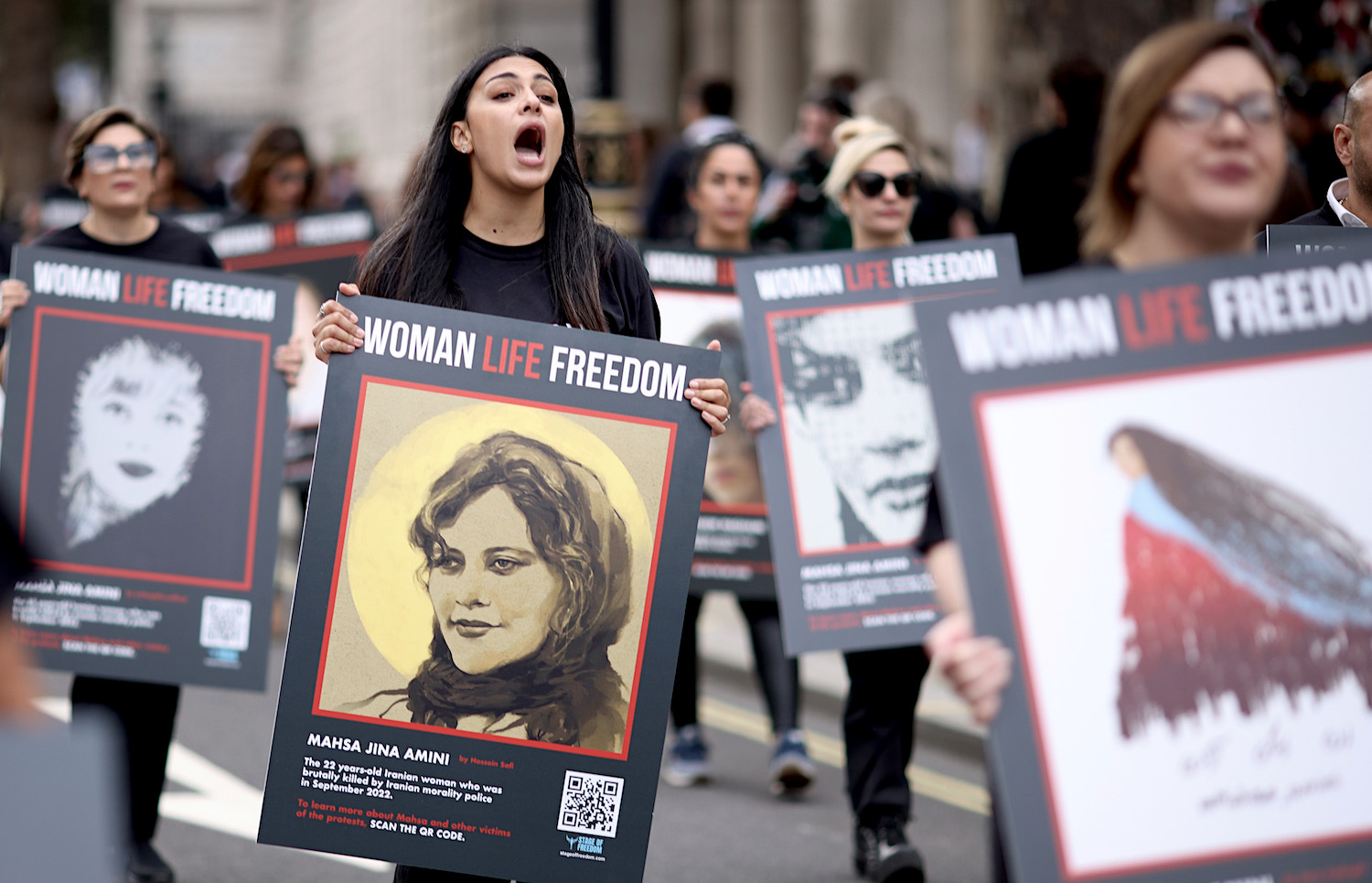Mahsa Amini was killed by Iran’s morality police on 16 September 2022. Her only ‘crime’ was wearing ‘improper hijab’. The 22-year-old Kurdish woman’s death galvanised the ‘Woman, Life, Freedom’ protests that shook the Iranian regime. Three years on, the anger behind the protests remains. On the anniversary of Amini’s death, residents of Tehran chanted ‘Death to the dictator’ (referring to the Supreme Leader Ayatollah Khamenei) from rooftops and windows, and shopkeepers in Mahsa’s hometown of Saghez, in Kurdistan province, went on strike.
This week, I’ve been speaking to Iranian exiles in Britain. For Ellie Borhan, a 43-year-old Iranian exile and activist, Mahsa’s death marked a turning point. ‘Something switched on inside me,’ she says. ‘I couldn’t stay silent anymore. And I won’t stop until the Islamic Republic has been brought down.’
Borham’s activities have made her family back in Iran collateral damage. In mid-June, as Israel and Iran launched airstrikes on one another during a 12-day war, Ellie’s 30-year-old brother was kidnapped and then tortured by the IRGC – Iran’s fearsome Revolutionary Guards. At the same time, the Guards were raiding the family home.
They found a video of Ellie’s 65-year-old mother chanting ‘Death to the Supreme Leader’. That was enough to put her on a watchlist. Her son was released, but only after agreeing to spy on Ellie and lure her to a neighbouring country, where the regime could kidnap her across the border.
Ellie’s mother and brother were forced to sign a loyalty pledge, and were scheduled to appear in court. Instead, they fled the country, carrying two suitcases.
Since 13 June, over 20,000 people have been arrested in Iran for crossing the regime: journalists, activists, relatives of protest victims, and religious or ethnic minorities including Baha’is, Kurds and Afghans. ‘We now say that prisons are like universities, because they are full of teachers, doctors, lawyers and professors,’ says Ellie. ‘Their only crime was asking for democracy.’
Iran’s parliament also passed a law imposing the death penalty for cooperation with ‘hostile’ entities, including Israel. Even the Jewish community is now a target. After the June conflict with Israel, around 35 Iranian Jews were arrested on suspicion of espionage.
The Islamic Republic doesn’t just suppress dissent at home. It exports its violence.
Last spring, Borhan was physically attacked outside a centre in Wembley, allegedly by supporters of the regime. She was punched, kicked, and hospitalised with a broken bone in her face. One of the attackers stole a phone from Ellie’s friend. The phone was later tracked to the Iranian Embassy in Kensington.
Iran’s fingerprints are all over other cases. MI5 recently stated that since the start of 2022, the UK has responded to 20 Iran-backed plots. In May this year, five Iranian men were arrested in suspicion of preparing a terrorist act on the Israeli embassy in London. Iran denies all involvement.
Back home, life under the regime continues to deteriorate. Many Iranians lack access to water or electricity, and 80 per cent of the population faces poverty. Still women flout the mandatory hijab law.
‘Women get harassed, refused service or entry if they don’t wear hijab,’ says Haleh Blake, co-founder of the campaign group United4Mahsa. ‘But they’re still resisting. One friend who went back to Iran said people now fight back. Their attitude has completely changed.’ Iran is done with the mullahs.








Comments